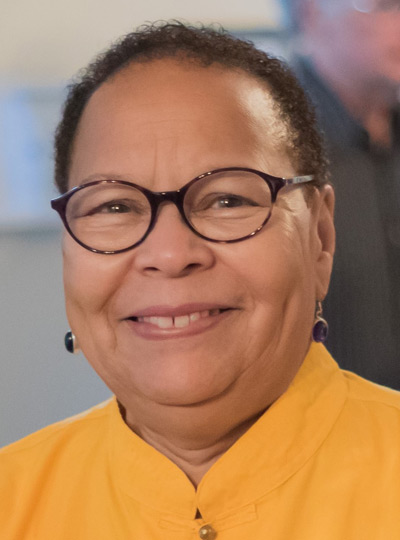Engaged Buddhism - Jan Willis
Jan Willis professor emeritus, who is a black Buddhist woman activist responds to the question ‘is engaged Buddhism possible?’
We are all interconnected beings, incapable even for a nanosecond of complete independence. Yet we conduct our lives as though we each possessed complete and ultimate control of our individual, isolated universes. We imagine enemies and competitors, and we fight for our share. Though we can sometimes envision a peaceful world, it becomes almost natural to see violence as inevitable and peace as impossible. But it is not.
We know in our hearts that violence does not bring peace, that hatred breeds more hatred, and that only with love and compassion can hatred ever truly be appeased. We recognize that, as human beings, we all wish to be happy and to avoid suffering. If we could, we would change the world so that every being enjoyed respect, peace, happiness and ease. Yet often it seems we don’t know how, or where, to start.
“As long as there is poverty in the world, I can never be totally rich….As long as people are afflicted with debilitating diseases, I can never be totally healthy…. I can never be what I ought to be until you are what you ought to be.”
—Martin Luther King Jr.
Dr. King also knew—and demonstrated—that any war for freedom must be a war waged with love.
Before we endeavor to change the world, we need to rekindle hope again. Hope grows from action, not from thought. If we wish to see an enlightened world of peace and justice for all, we have to move beyond merely imagining it, to nonviolent actions, however small, that will help to usher it in.
So can Buddhist social engagement actually be a path of happiness? Buddhism has always been engaged because it has always emphasized compassion, and it starts from the principle that everyone is exactly the same, in that all people wish to attain happiness and avoid suffering.
One challenge for Socially Engaged Buddhism, is to work amid samsara with full presence and awareness of suffering, working to end that suffering for ourselves and others, and doing so happily – with bliss, and with love. It’s necessary for each of us as individuals, and it’s also essential for us as communities. Communities serve as important and viable alternatives to a dominant society based on craving, anger, and delusion and producing endless suffering – and they serve, too, as models for collective happiness.
Dr. Jan Willis Bio
Dr. Willis has a distinguished career as a scholar and teacher of Buddhism that spans fifty years. She first met Tibetan Buddhists in India and Nepal when she was nineteen and went on to earn degrees in Philosophy and Indic and Buddhist Studies from Cornell and Columbia Universities.
Dr. Willis has taught Buddhist Studies and Philosophy at UC Santa Cruz, the University of Virginia and Wesleyan University. Now in retirement, she teaches part-time at Agnes Scott College in Decatur, Georgia and leads workshops exploring race and racism through a Buddhist Lens.
In her academic and popular books and essays, Dr. Willis writes with moving precision on Tibetan Buddhism, the lives of Buddhist saints, women and Buddhism, and Buddhism and race. Her latest book is the compelling essay collection Dharma Matters: Women, Race, and Tantra. Dr. Willis’ unique personal story is captured in her memoir Dreaming Me: Black, Baptist, and Buddhist—One Woman’s Spiritual Journey.